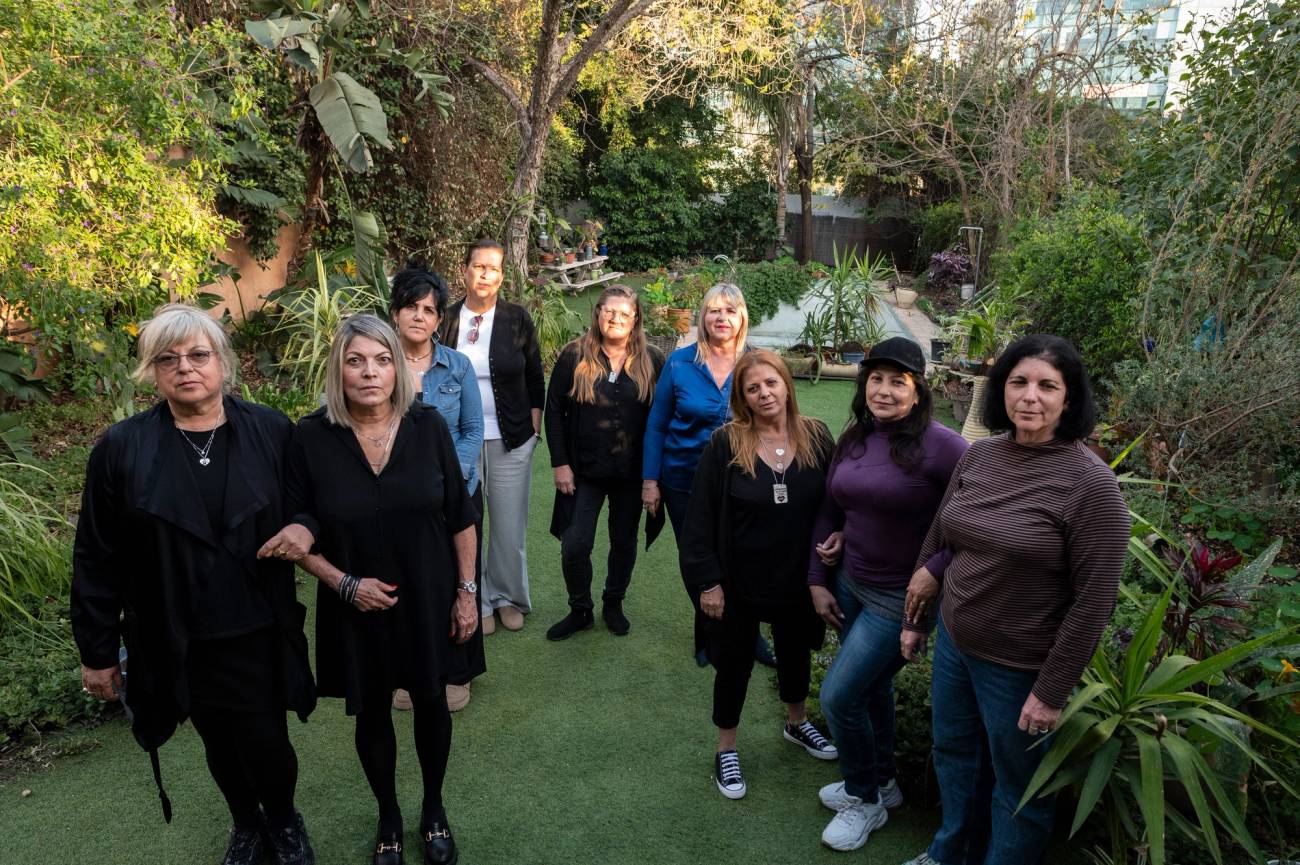‘Now You Are in Heaven, and the Only Thing Left Is Pain’
How Sigalit Shemer tries to cope with the loss of her son Ron, who was killed at the Nova music festival on Oct. 7

Magali Druscovich

Magali Druscovich

Magali Druscovich
Ron Shemer was a lover of nature and animals, passionate about chasing sunsets at sea. He grew up in Lod, Israel, as the eldest son in his family, and after his military service as a deputy company commander in the Military Police Crossing Fighters Battalion, he dedicated himself to preserving the quality of the environment and planned to begin his studies in biotechnology at the university in October 2024. Not only was Ron meticulous in his work and studies, his family and friends occupied a primary place in his life. Even when Ron was in the deepest corners of the world, he used to talk to his family every day and do a joint kiddush with them on Zoom every Shabbat.
When terrorists from Gaza entered the Nova music festival—where Ron had gone with a group of friends—on Oct. 7, the first thing he did when he escaped was call his mother to tell her that he was fine, safe, and on his way home. When his group of friends managed to get a car to leave, Ron noticed that two of his best friends, Dan and Omar, were not there. He got out of the car to go back in search of them. Along the way, he helped a girl who had been frozen by a panic attack.
After Ron found his friends, an alarm sounded and together they entered a bus shelter at the Gama Junction. Suddenly, a group of terrorists arrived and threw grenades at them. Ron protected his friends with his body but the grenades wounded them all. Omar survived. Dan was injured, lost blood, and died hours later. Ron, still wounded, went out to confront the terrorists, but didn’t return. Missing, he was assumed to have been taken hostage by Hamas—until a week later, 23-year-old Ron was found dead by the army, 50 meters from the shelter. He was one of 364 people murdered at the Nova festival.
Ron’s mother, Sigalit, used to ask her son to return quickly to her house in Ramat Gan while he was away in South America enjoying the sea, or working with Jewish youth in the U.S. She felt that the safest place he could have was in her home, in the country where he grew up. Sometimes she wonders what would have happened if he didn’t return, but on the other hand, she is grateful because it happened in Israel and not in some remote place and that also it happened when he was not alone.
In March, I followed Sigalit as she visited Ron’s grave, attended a protest at a central Tel Aviv square, and joined meetings with mothers of other partygoers murdered in the attack. These mothers didn’t know one another before, but now they meet regularly to share their pain, and, as some of them hope, find purpose after their children’s deaths. Six months later, many families of those killed or kidnapped on Oct. 7 still feel abandoned and not supported by the government. Sigalit’s story is the story of many other mothers who, in a state of a grieving nation, are trying to make sense of what had led to that day’s disaster.
Magali Druscovich is a photographer and journalist from Argentina focusing on stories about human rights, youth, and health, exploring trauma and resilience.